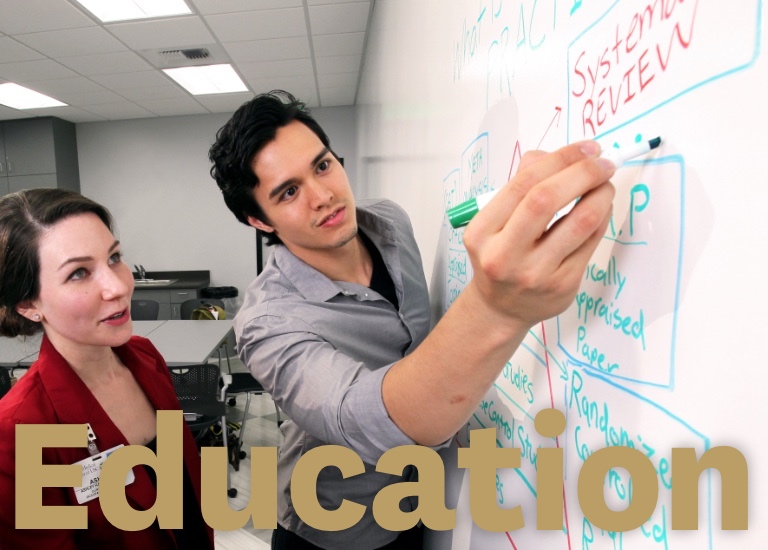Education at USC Chan
Research Opportunities
Directed Research (OT 590)
As part of their elective emphases, students may elect to take 2 to 12 units of Directed Research (OT 590). These experiences have enabled graduate students in the Entry-Level Master’s program to work with faculty on extramurally funded research programs in areas such as aging, cultural boundaries, spina bifida, autism, sensory integration, and neuroscience.
Student Worker Positions
Students may be hired part-time to work on Division research. Find out about the Division’s research faculty, and active research projects.
Post-Professional Doctorate of Occupational Therapy Program (OTD)
Research Expertise Track
Engage in research experience and develop skills for research and evidence-based practice, primarily in clinical settings. Develop a subset of skills to better understand the landscape of research programs, to undertake evidence-based studies in clinical settings and to collect outcome data as part of practice. In this track, students complete three semester residencies in ongoing interdisciplinary research programs and emphasize occupational science and research methodologies in their coursework.
Doctor of Philosophy in Occupational Science (PhD)
The signature element of our PhD program is the student’s immersion in the Division’s externally-funded research programs. Throughout their program, PhD students spend a minimum of 20 hours per week (for which a stipend and course credit is awarded) participating as members of a research team. Becoming a career scientist requires conducting research alongside experienced mentors. In the immersion experience, students are involved in the following: developing important research questions; applying for and managing extramural funding; data collection, analysis and interpretation; disseminating results in peer-reviewed journals, attending conferences and giving presentations; participating in research lab management; and many other activities that comprise the standard work of scientists.





